第9章 BOOK I(9)
According to the argument there is one among these cords which every man ought to grasp and never let go,but to pull with it against all the rest;and this is the sacred and golden cord of reason,called by us the common law of the State;there are others which are hard and of iron,but this one is soft because golden;and there are several other kinds.Now we ought always to cooperate with the lead of the best,which is law.For inasmuch as reason is beautiful and gentle,and not violent,her rule must needs have ministers in order to help the golden principle in vanquishing the other principles.And thus the moral of the tale about our being puppets will not have been lost,and the meaning of the expression "superior or inferior to a man's self"will become clearer;and the individual,attaining to right reason in this matter of pulling the strings of the puppet,should live according to its rule;while the city,receiving the same from some god or from one who has knowledge of these things,should embody it in a law,to be her guide in her dealings with herself and with other states.In this way virtue and vice will be more clearly distinguished by us.And when they have become clearer,education and other institutions will in like manner become clearer;and in particular that question of convivial entertainment,which may seem,perhaps,to have been a very trifling matter,and to have taken a great many more words than were necessary.
Cle.Perhaps,however,the theme may turn out not to be unworthy of the length of discourse.
Ath.Very good;let us proceed with any enquiry which really bears on our present object.
Cle.Proceed.
Ath.Suppose that we give this puppet of ours drink-what will be the effect on him?
Cle.Having what in view do you ask that question?
Ath.Nothing as yet;but I ask generally,when the puppet is brought to the drink,what sort of result is likely to follow.I will endeavour to explain my meaning more clearly:what I am now asking is this-Does the drinking of wine heighten and increase pleasures and pains,and passions and loves?
Cle.Very greatly.
Ath.And are perception and memory,and opinion and prudence,heightened and increased?Do not these qualities entirely desert a man if he becomes saturated with drink?
Cle.Yes,they entirely desert him.
Ath.Does he not return to the state of soul in which he was when a young child?
Cle.He does.
Ath.Then at that time he will have the least control over himself?
Cle.The least.
Ath.And will he not be in a most wretched plight?
Cle.Most wretched.
Ath.Then not only an old man but also a drunkard becomes a second time a child?
Cle.Well said,Stranger.
Ath.Is there any argument which will prove to us that we ought to encourage the taste for drinking instead of doing all we can to avoid it?
Cle.I suppose that there is;you at any rate,were just now saying that you were ready to maintain such a doctrine.
Ath.True,I was;and I am ready still,seeing that you have both declared that you are anxious to hear me.
Cle.To sure we are,if only for the strangeness of the paradox,which asserts that a man ought of his own accord to plunge into utter degradation.
Ath.Are you speaking of the soul?
Cle.Yes.
Ath.And what would you say about the body,my friend?Are you not surprised at any one of his own accord bringing upon himself deformity,leanness,ugliness,decrepitude?
Cle.Certainly.
Ath.Yet when a man goes of his own accord to a doctor's shop,and takes medicine,is he not aware that soon,and for many days afterwards,he will be in a state of body which he would die rather than accept as the permanent condition of his life?Are not those who train in gymnasia,at first beginning reduced to a state of weakness?
Cle.Yes,all that is well known.
Ath.Also that they go of their own accord for the sake of the subsequent benefit?
Cle.Very good.
Ath.And we may conceive this to be true in the same way of other practices?
Cle.Certainly.
Ath.And the same view may be taken of the pastime of drinking wine,if we are right in supposing that the same good effect follows?
Cle.To be sure.
Ath.If such convivialities should turn out to have any advantage equal in importance to that of gymnastic,they are in their very nature to be preferred to mere bodily exercise,inasmuch as they have no accompaniment of pain.
Cle.True;but I hardly think that we shall be able to discover any such benefits to be derived from them.
Ath.That is just what we must endeavour to show.And let me ask you a question:-Do we not distinguish two kinds of fear,which are very different?
Cle.What are they?
Ath.There is the fear of expected evil.
Cle.Yes.
Ath.And there is the fear of an evil reputation;we are afraid of being thought evil,because we do or say some dishonourable thing,which fear we and all men term shame.
Cle.Certainly.
Ath.These are the two fears,as I called them;one of which is the opposite of pain and other fears,and the opposite also of the greatest and most numerous sort of pleasures.
Cle.Very true.
Ath.And does not the legislator and every one who is good for anything,hold this fear in the greatest honour?This is what he terms reverence,and the confidence which is the reverse of this he terms insolence;and the latter he always deems to be a very great evil both to individuals and to states.
Cle.True.
Ath.Does not this kind of fear preserve us in many important ways?What is there which so surely gives victory and safety in war?
For there are two things which give victory-confidence before enemies,and fear of disgrace before friends.
Cle.There are.
Ath.Then each of us should be fearless and also fearful;and why we should be either has now been determined.
Cle.Certainly.
Ath.And when we want to make any one fearless,we and the law bring him face to face with many fears.